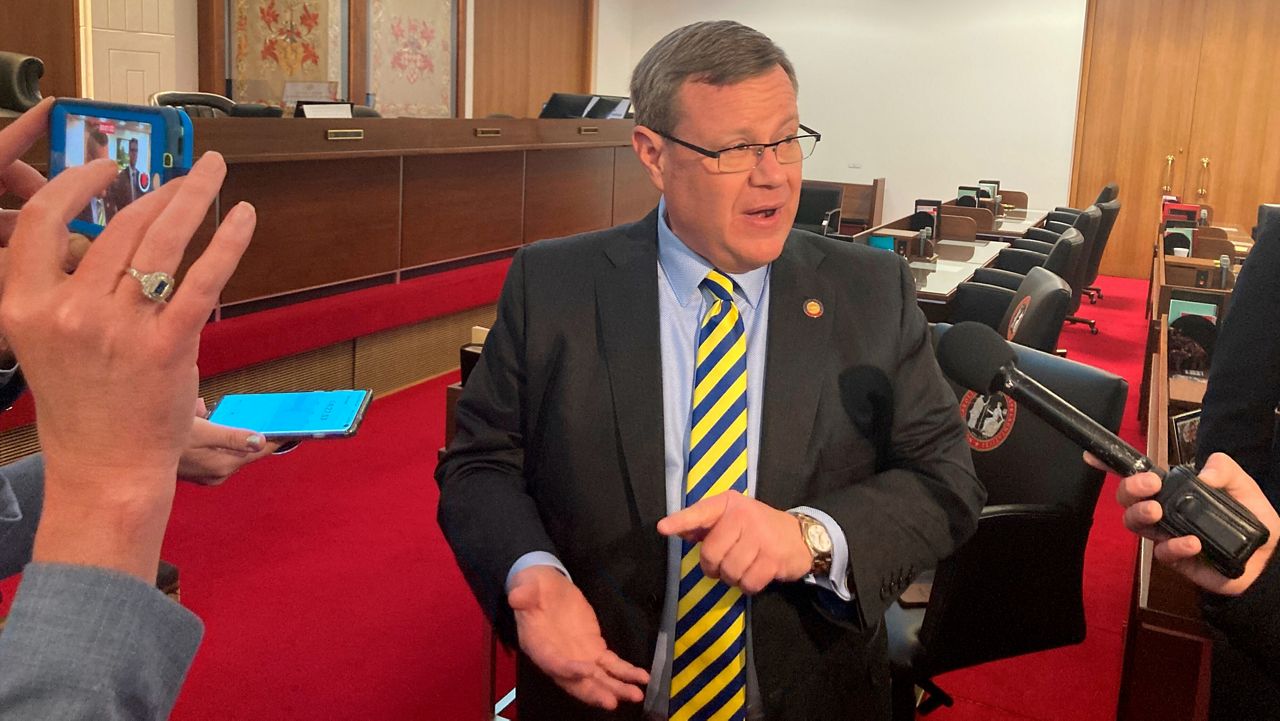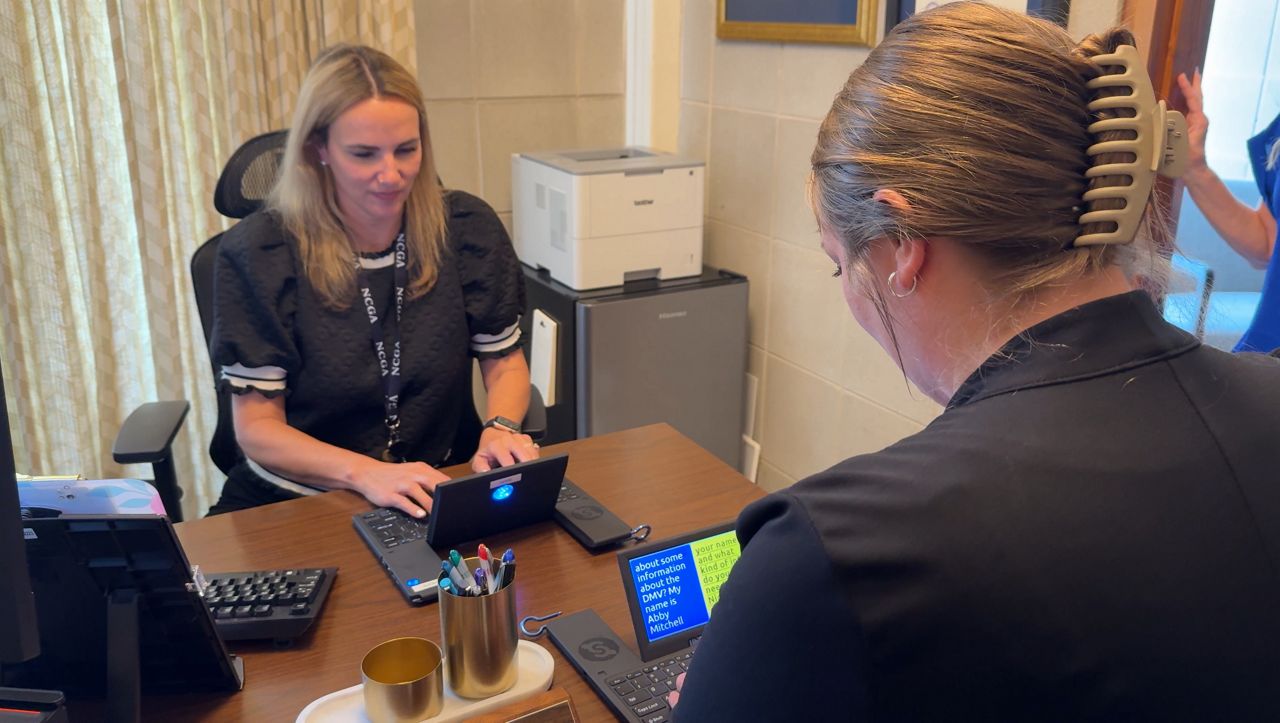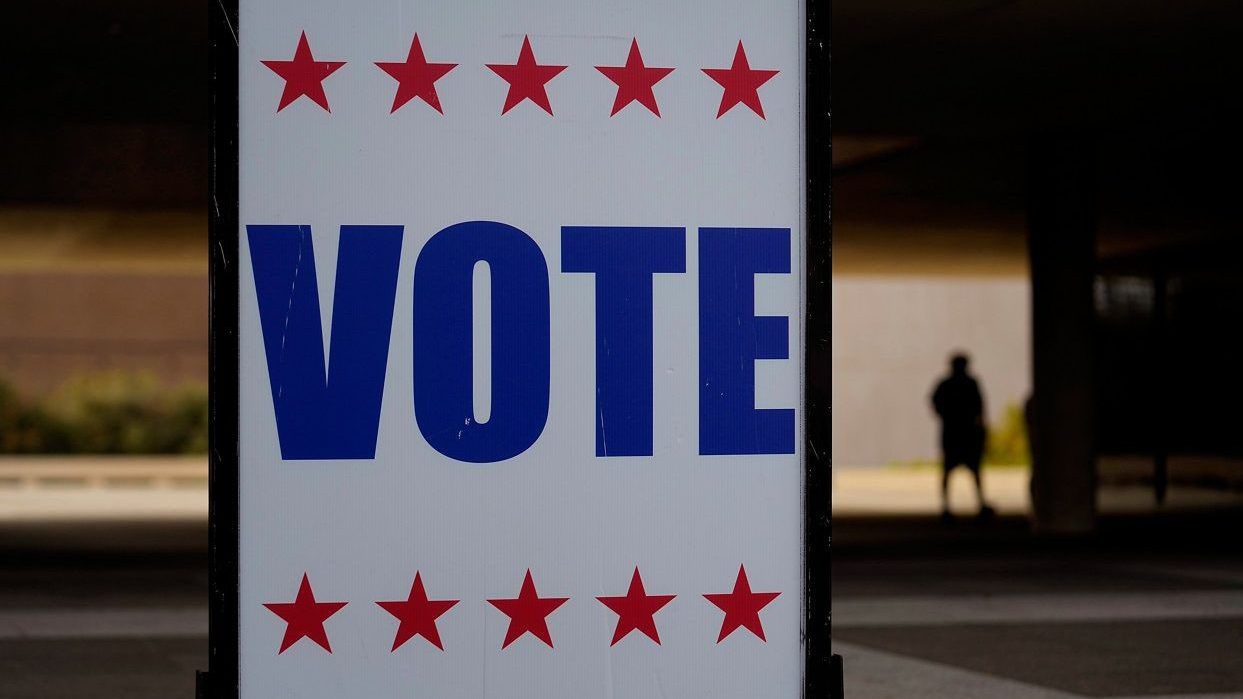RALEIGH, N.C. (AP) — A North Carolina General Assembly annual work period that stretched 14 months while a state budget was finalized and district maps were redrawn twice essentially concluded Thursday with passage of a cleanup bill and backing a resolution supporting Ukraine.
With a House vote complete, the legislature will send to Gov. Roy Cooper's desk an omnibus measure that included both technical and substantive changes to items contained in the current two-year state government budget and other recently approved legislation.
Provisions included helping more businesses with a COVID-19 economic recovery grant program, raise pay for more home health-care and personal-care workers covered by government health programs to $15 per hour and expand a federal crop loss program to a hard freeze last spring. There were also changes to how money for local capital projects are distributed.
The 52-page bill, which received Senate approval Wednesday, also ensures that any runoffs from the May 17 primary elections are held July 26. State law would have required “second primaries” to be held July 5 if none of them were for U.S. Senate or U.S. House nominations. Election officials were concerned about finding workers for the day after Independence Day.
When the legislature officially ends on Friday its work session that began in January 2021, it’ll mark the longest such session since at least 1965, when calculated by the number of days that lawmakers held chamber floor meetings, according to legislative data. When all of the scheduled meeting times are added, the House had gaveled in 198 daily floor sessions as of Thursday, with the Senate 196 legislative days.
“We have set a record," House Speaker Tim Moore, a Cleveland County Republican, said to colleagues, “and I hope it is a record that we don’t try to break. I certainly won't.”“We have set a record," House Speaker Tim Moore, a Cleveland County Republican, said to colleagues, “and I hope it is a record that we don’t try to break. I certainly won't.”
The House also voted unanimously on Thursday for a resolution stating it “stands in solidarity with the people of Ukraine as they fight for their freedom” against the Russian invasion. It also urges the federal government to hold the Russian government accountable for its actions and “take steps to reduce the United States’ dependence on foreign oil by increasing domestic energy production.”
The resolution asks that federal law be changed so state pension funds can seek financial damages in courts should they lose money from “corrupt regimes and foreign state-owned corporations.” That could lead to the seizure of Russian assets as compensation, according to the office of State Treasurer Dale Folwell, who backs the idea. Senators offered a similar request on Wednesday.
Historically, the first, odd-numbered year of the General Assembly’s biennial session ends in the summer. But that didn’t happen in 2021, as COVID-19 precautions and federal aid, a later tax filing deadline, a multibillion-dollar revenue surplus and lengthy budget talks between Republican legislative leaders and the Democratic governor pushed the work well into the fall.
“Everything in the world happened this year,” said Rep. Robert Reives of Chatham County, who had just become the chamber’s Democratic leader in early 2021.
And while redistricting was completed in early November, litigation over the maps and resulting uncertainty prompted legislative leaders to keep the session open, leading to many pro forma floor meetings. The General Assembly returned for votes in late November, mid-January and ultimately in mid-February, when a state Supreme Court ruling that struck down the congressional and legislative maps as illegal partisan gerrymanders forced redraws. The last legal appeal ended this week.
The approved resolution formally closing the 2021 session gives the General Assembly the option to hold three days of meetings in early April and early May, but a top senator said it’s unlikely they’d be used. If true, the legislature wouldn’t need to return until May 18 for the start of its traditional session in even-numbered years.
Adjusting the second year of the current two-year budget is the top responsibility of lawmakers during this “short session.” Both Moore and Senate Rules Chairman Bill Rabon said this week that the goal was to keep the upcoming session truncated. Recent “short sessions” ended in late June or July.









